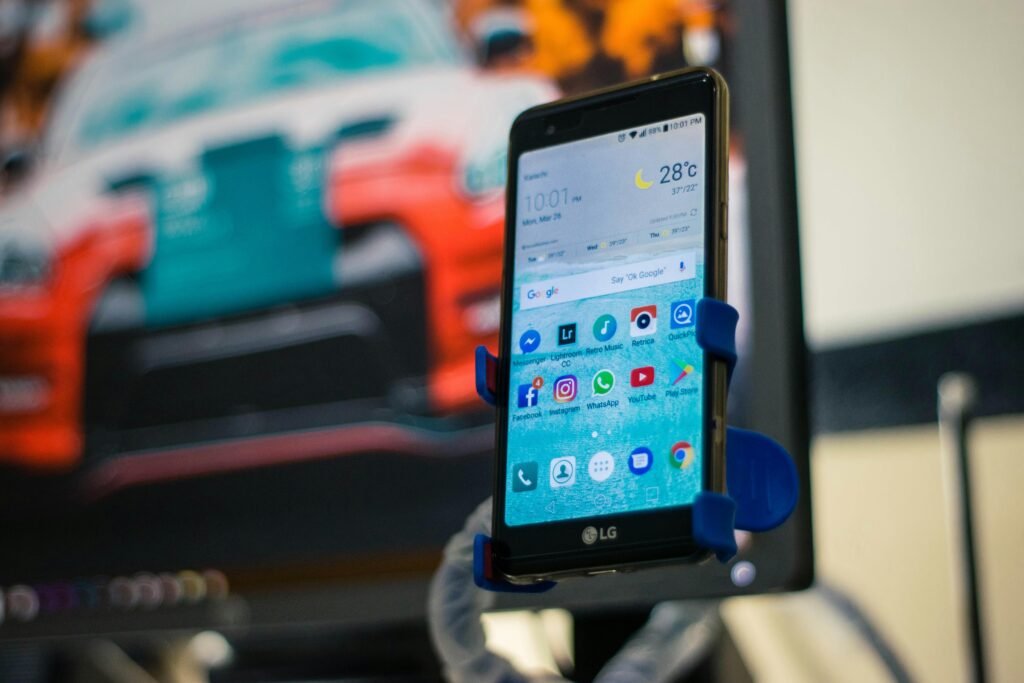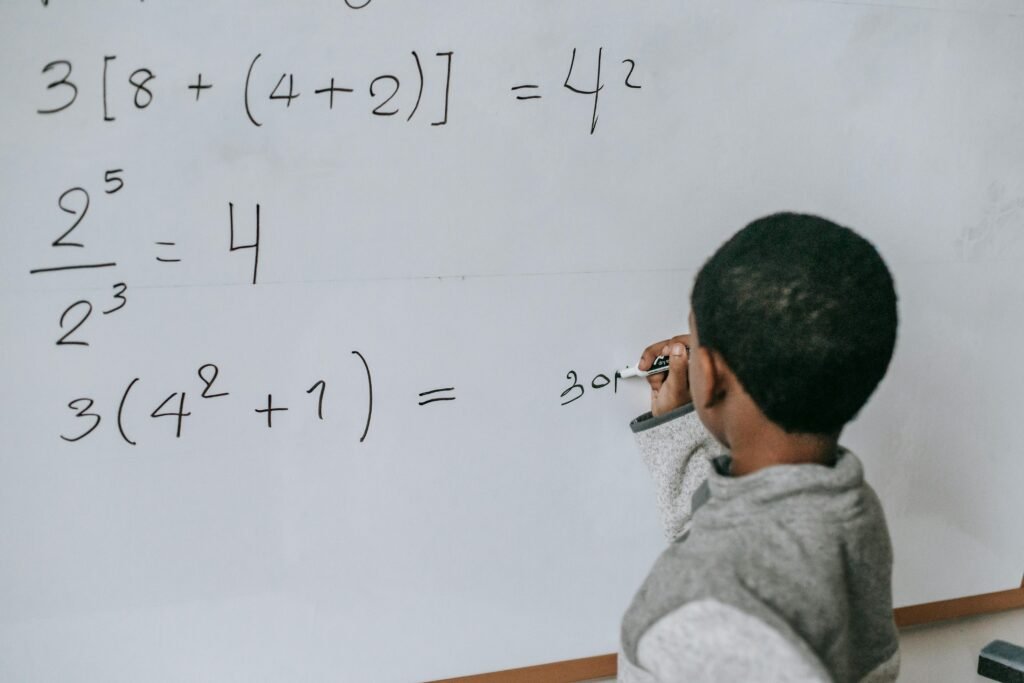Staying focused while studying is not easy these days. Phones buzz. Apps ping. Friends send messages. And before you know it, you’ve lost track of time. Apps like Discord, Snapchat, and WhatsApp have become part of everyday life for students. They help us stay connected. They’re fun. But here’s the thing — they can also steal our attention. Quietly. Constantly.
1. Students receive an average of 63 notifications per hour when Discord, Snapchat, and WhatsApp are open
Imagine this. You sit down to study. You open your book. Five minutes in, your phone lights up. It’s a new message. You check it. You come back to studying. Two minutes later—another notification. It doesn’t stop. That’s because the average student gets about 63 notifications every single hour from just these three apps: Discord, Snapchat, and WhatsApp.
That’s more than one notification every minute.
Now think about it—how can your brain truly settle down and focus if it’s being interrupted over and over again? Every ping, vibration, or pop-up acts like a tiny tug pulling your attention away from your task. Even if you don’t reply to the message, just seeing it flash on your screen is enough to pull your brain out of “study mode.”
These notifications are not always urgent. In fact, most of them are random conversations, group chats, or meme shares. But your brain still reacts like it’s something you need to respond to right now. That constant back-and-forth is exhausting, and it’s not just about time—it’s about energy.
Actionable Advice
If you’re serious about studying well, turn off those notifications. You don’t need to delete the apps. Just put them on “Do Not Disturb” or “Focus Mode” while you study. This way, you don’t get pulled into conversations every two minutes.
Try keeping your phone face down or in another room. If you’re using a computer to study and have Discord open, sign out completely. Better yet, schedule your breaks and use that time to catch up on messages. Think of it as a reward after focused work.
Another idea is to use “notification blockers” or apps like Forest, Freedom, or Focus Keeper. They lock distracting apps for a set time while keeping the rest of your phone usable. This makes it easier to stay in control.
Most importantly, be honest with yourself. Are you checking messages because you’re bored or because they’re truly important? If it’s boredom, take a short walk or grab a snack instead. Your brain needs rest, not endless notifications.
Studying without constant pings is like driving on an open road—smooth, calm, and focused. You get more done in less time and feel proud of it. Let’s move on to the next stat.
2. It takes 23 minutes and 15 seconds to refocus after a single distraction
You might think you can jump right back into studying after checking a quick message. But your brain doesn’t work that way. Research shows it takes over 23 minutes to fully refocus after just one interruption.
Yes, even a short reply like “lol” or “brb” can cost you almost half an hour of real focus.
When you shift your attention to a message, your brain starts to rewire its focus. It stops thinking deeply about the math problem or the science topic you were learning. When you try to go back, it’s not like flipping a switch. Your brain has to rebuild that concentration slowly. That’s what takes time.
So imagine if you get even 3 messages in one hour. That’s not just 3 minutes lost—it could mean more than an hour of broken focus and wasted effort.
Actionable Advice
Treat your focus like it’s gold—because it is. If something breaks it, protect it. Start by creating a “focus window”—a set period of time (like 25 or 45 minutes) where you decide nothing else matters. No checking texts. No social media. Just learning.
Once that window ends, give yourself a short break. Then come back and do another round. This is called the Pomodoro method, and it works because it helps your brain stay fresh while also protecting those deep-thinking moments.
If someone needs to reach you for something urgent, let them know your study times. Most people will respect your schedule if you ask. And if they don’t, that tells you they don’t understand how important your learning is.
Finally, keep a small notebook nearby. If a thought or task pops into your mind, write it down instead of acting on it. That way, your brain doesn’t feel like it has to switch gears. You can handle those thoughts later—when it’s not interrupting your learning.
Focus isn’t just about getting good grades. It’s a skill that helps you do anything better in life. The more you practice it, the stronger it becomes.
3. 70% of students say they check messages or social apps at least once every 10 minutes during study sessions
That’s 7 out of 10 students. Every 10 minutes, they stop studying and pick up their phone. That means in a one-hour study session, they check their phone at least 6 times. No wonder it feels hard to stay focused.
When you keep interrupting yourself like that, your brain never gets to go deep. It’s like trying to build a tower but knocking it over every few minutes. You start again, then stop. Again and again.
It’s not just about wasting time. It’s about never reaching the level of understanding where real learning happens.
Most students don’t do this on purpose. It’s just a habit. You see the screen light up, and your fingers move before you even think. That’s how deeply wired this behavior has become.
Actionable Advice
Start by noticing how often you pick up your phone. Try this: the next time you sit down to study, put a tally mark on a paper every time you check your phone. You might be shocked by the number.
Once you’re aware of the habit, you can start to change it.
Try setting a simple rule: no checking the phone until you finish one full task. Maybe that’s finishing a math worksheet, writing one full paragraph, or watching a complete lesson video.
Another trick is to put your phone in grayscale mode. When your phone is black and white, it becomes way less exciting. The colors are part of what draws you in. Remove that, and the temptation goes down a lot.
If checking messages feels automatic, change the pattern. Move your phone to a different room. Or sit in a different place to study. New habits need new environments.
And remember: it’s okay to chat with friends. Just not while you’re trying to learn. Make space for both in your day. That’s how you build balance.
4. 56% of students report they feel more anxious when they try to study without checking messages
This might sound surprising. You’d think putting your phone away would bring peace. But for more than half of students, it actually creates stress. Why? Because they feel like they’re missing out. Maybe a friend is going through something. Maybe there’s a joke in the group chat. Or maybe someone tagged them in a funny snap.
This kind of stress has a name—social anxiety. It doesn’t mean something is wrong with you. It just means your brain has gotten used to constant connection. So when it stops, it feels like something is missing.
The tricky part is that this anxiety can make studying feel worse. You sit down to focus, but your mind keeps wandering to what might be happening online. That makes it hard to think, and even harder to learn.
Actionable Advice
First, understand this: the fear of missing out is normal. We all want to be included. We all want to know what’s happening. But the truth is—you’re not really missing anything important in those moments. Most of the time, it’s just small talk, memes, or updates you can catch up on later.
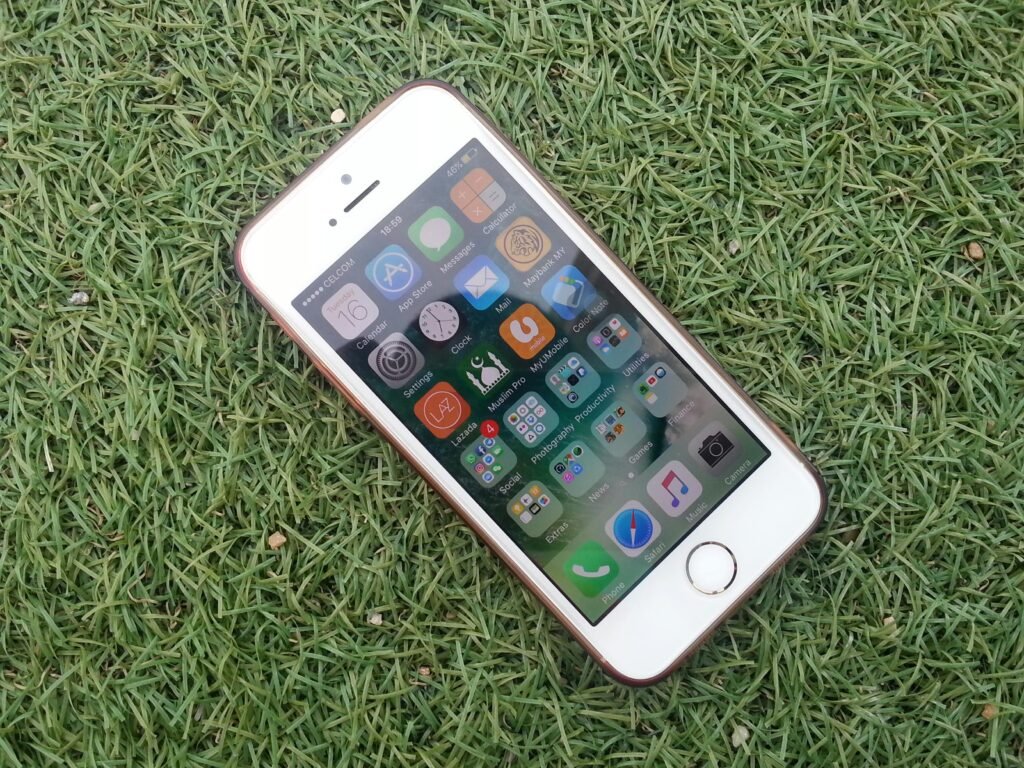
To deal with the anxiety, don’t go cold turkey. Instead, ease into focused study. Start by studying without your phone for just 15 minutes. Then check messages for 2 minutes. Then do another 15 minutes. Slowly stretch those focus times.
Another tip is to let your friends know you’re studying. You can send a quick message saying, “Hey, I’m focusing for the next hour. I’ll reply after.” That way, you won’t feel guilty or anxious about not replying right away.
Also, try calming habits before study time. Take a few deep breaths. Listen to relaxing music. Stretch your body. These simple steps can help your mind settle and reduce the fear that you’re missing out.
And if the anxiety still feels strong, ask yourself: “Is this helping or hurting my goals?” If it’s hurting, then it’s worth trying something new.
5. Using messaging apps while studying can drop test performance by up to 20%
A 20% drop is huge. Imagine scoring 80% on a test. Now imagine getting a 60% just because you kept checking your phone while studying. That’s the kind of difference we’re talking about.
Why does this happen? Because every message, every little chat takes your brain away from deep thinking. You don’t just lose time—you lose understanding. And that shows up on test day. You forget formulas. You misread questions. You run out of time. It’s not because you didn’t study—it’s because your brain never got to go deep.
Actionable Advice
If you’re serious about doing well on tests, start treating study time like test time. During a test, you don’t check your phone, right? So train your brain to focus the same way when you’re preparing.
Make study time “phone-free time.” Put your phone in airplane mode or turn it off. Or better yet, leave it in another room. Out of sight, out of mind.
Also, set a goal for every session. Instead of saying “I’ll study for an hour,” say “I’ll finish two pages of my notes.” This gives your brain something clear to work toward, and you’re less likely to get bored and reach for your phone.
After your session, reward yourself. Watch a short video. Check your messages. Eat a snack. This tells your brain that focus brings a good feeling, not stress.
And if you need help staying off your phone, ask someone in your home to keep it for you during study time. Sometimes a little outside help makes all the difference.
You don’t need to study more. You just need to study better. And better starts with focus.
6. 90% of high school students keep their phones within reach while studying
That’s almost every student. And guess what? Just having the phone nearby can lower your brain power. Even if it’s face down. Even if it’s on silent. Your brain still knows it’s there.
It’s like a small voice saying, “Hey, check me. Something fun might be waiting.” That voice makes it harder to focus, even if you don’t touch your phone.
Researchers have found that students who study with their phone in another room do much better than those who keep it close. That’s because their minds aren’t doing the quiet work of resisting temptation all the time.
Actionable Advice
Move your phone out of your study space. Not under your pillow. Not in your pocket. Not next to your water bottle. In another room. On a shelf. In a drawer. Anywhere that’s not next to you.
You can also set a rule: “No phones on the desk.” Just like schools have “no phone” rules during class, you can have one for yourself. This helps your brain connect your desk with learning, not texting.
If you use your phone for study tools (like a calculator or timer), try switching to actual devices. Use a real calculator. Use a kitchen timer. Or install study-only apps that block distractions.
Another powerful trick is to start a “study signal.” Light a candle. Play calm music. Wear headphones. These small signals tell your brain it’s focus time. When you repeat them every day, your mind gets into the habit faster.
If it feels hard at first, that’s okay. New habits take time. But every time you study without your phone nearby, your brain gets a little stronger. That’s how real learning happens.
7. 42% of students admit to switching between study materials and apps more than 10 times per hour
That’s a lot of switching. One minute you’re watching a science video. Then a Discord message pops up. You reply. Then you go back to the video—but now you forgot where you left off. You rewind. Then your friend sends a snap. You check it. Back to the video. And the cycle continues.
All that back-and-forth is called task-switching, and it’s not good for your brain. It makes learning feel like hard work. It slows you down. And worst of all, you don’t remember much.
It’s like trying to read a book while dancing. You’re doing two things, but neither one is done well.
Actionable Advice
Break the habit of switching. Start by doing one task at a time. Watch one full video before you open any apps. Write one full answer before checking your phone.
If you’re using your device for studying, go full screen. That way, you can’t see the other apps or tabs. Or install browser extensions that block certain sites during your study time.
You can also try the “sticky note” trick. Write your task on a sticky note and put it on your screen or notebook. This keeps your goal in sight and reminds you not to switch.
And if you feel the urge to check messages, tell yourself, “Not yet.” Set a timer for 10 more minutes. Often, just waiting a little helps the feeling pass.
Your brain is not built to jump between tasks. It’s built to go deep when you give it the space. Protect that space.
8. Students who use social apps while studying score 17% lower on average in exams than those who don’t
Seventeen percent might not sound like a big deal at first. But think about it like this: if a student who focuses gets an 85 on a test, someone who studies the same material but keeps checking social apps could end up with a 68. That’s a whole grade level lower.
Why does this happen? Because learning is not just about reading or watching. It’s about remembering, connecting ideas, and solving problems. Every time you stop to reply to a message or check Snapchat, your brain loses its train of thought. You don’t absorb the material the same way.
This doesn’t mean the student using social apps is less smart. Not at all. It simply means their focus is broken, and that makes a big difference when it’s time to recall what they’ve learned.
Actionable Advice
If you want better test scores, make a small promise to yourself: “Study now. Scroll later.” Tell yourself this before each session. It helps build a clear boundary between study time and chat time.
Also, set up a clean, quiet space where only studying happens. When you create an environment that’s free of distractions, your brain performs better. Even if you study for less time, the quality of learning is much higher.
Another tip is to practice active recall. After every 15 minutes of reading or watching, close your book or screen and try to explain what you just learned—out loud or in writing. This helps your brain lock in the information. And when your mind isn’t jumping back and forth between apps, it’s much easier to remember.
Exams don’t test how many hours you sat with a book. They test how much your brain truly understood and remembered. To do well, give your brain a fighting chance by turning off distractions.
9. Multitasking with messaging apps during study reduces memory retention by 40%
This stat is one of the most shocking. Multitasking while studying doesn’t just slow you down—it actually causes you to forget more.
A 40% drop in memory retention means that nearly half of what you just studied could slip away. You might think, “I’m good at multitasking,” but the brain just doesn’t work like that. It processes one deep task at a time. When you switch back and forth between texting and learning, your brain drops chunks of what it just processed.
This is why you might feel like you studied all day, but then forget everything during the test.
Actionable Advice
Start treating your brain like a sponge. When it’s soaked in distraction, it can’t hold knowledge. But when it’s calm and focused, it absorbs more and keeps it longer.
Instead of multitasking, try single-tasking with breaks. Use a timer for 30 minutes of focused study, followed by a 5-minute break. During the break, walk around, stretch, or check messages. Then jump back in. This rhythm is easier on the brain and helps you remember more.
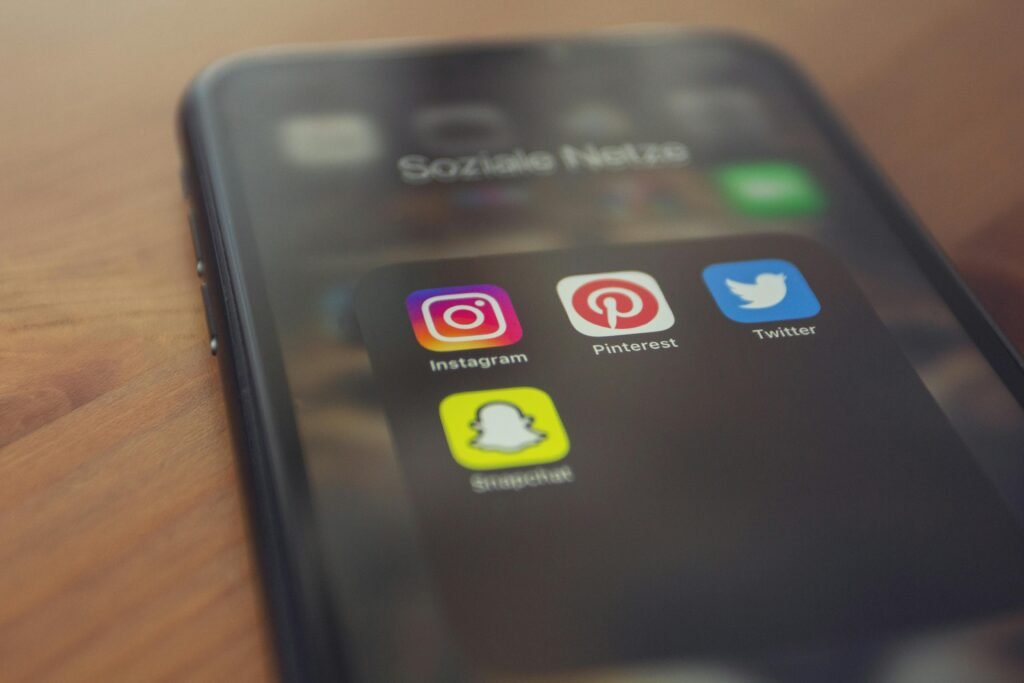
Another powerful habit is writing notes by hand. This slows you down a little, but that’s a good thing. It forces your brain to engage more deeply. And when you’re not switching apps, you’ll be amazed at how much you can remember later.
Try reviewing what you learned at the end of each study session. Talk to yourself. Teach it to a sibling. Or write a quick summary. If you can explain it clearly, your brain has stored it well.
10. 65% of students believe they are good at multitasking, but only 2% can actually multitask effectively
Here’s the truth: most students think they can handle studying and chatting at the same time. But research shows only a tiny 2% of people can truly multitask without losing performance. The rest? They think they’re doing fine, but their focus and memory drop without them even realizing it.
Multitasking feels productive because you’re doing more than one thing. But doing two things halfway is never better than doing one thing well. The more we jump between tasks, the more errors we make. And the more tired we feel afterward.
Actionable Advice
Accept that multitasking while learning is a myth. It’s okay to believe in yourself—but it’s even better to work smart. Focused, single-task study wins every time.
Give yourself permission to do one thing at a time. You don’t need to prove you can juggle five things at once. You need to give your brain a space to breathe and go deep.
Try a “focus first” challenge. For one week, during study time, turn off all apps. Don’t check your phone. Don’t switch screens. See how much more you remember. Write down how you feel after each session. More confident? Less stressed? That’s your brain working better.
Also, ask someone at home to keep you accountable. Tell them you’re doing a no-multitasking challenge. Sometimes just knowing someone is cheering you on can help you stick to it.
Focus isn’t a skill you’re born with. It’s something you build, one session at a time.
11. Each app notification causes at least a 5-second delay in focus recovery
Five seconds doesn’t sound like much, right? But it adds up quickly. One notification, one ping, one light-up screen—each time, your brain takes a little detour. And when it happens over and over, those detours steal your momentum.
You might think, “I’ll just glance at it.” But even if you don’t open the app, your mind is already wondering who it’s from, what they said, and whether it’s important. That thought can live in your brain for minutes, quietly pulling energy away from what you were doing.
Actionable Advice
The best way to stop this is to cut off the trigger. That means no notifications during study time. Not just silent mode—full stop. Go to settings and turn off notifications from WhatsApp, Discord, Snapchat, or any app that distracts you.
You can also put your phone on “Do Not Disturb” or use a special Focus mode. Set it so that only your parents or teacher can contact you during study hours.
If you use your phone to track study time, switch to apps that block notifications while they’re running. Tools like Forest, Flipd, or Minimalist Timer help you stay on track.
Think of each study session like a bubble. Every ping pops that bubble. So protect it. Build a quiet, focused bubble and stay in it as long as you can.
You’ll be amazed at how much you can get done in just 25 minutes without interruptions.
12. 83% of students use Snapchat or WhatsApp to vent about study stress, causing emotional distractions
This stat shows another kind of distraction—emotional distraction. It’s not just about time lost. It’s about the emotional weight that comes from constant chatting about stress.
When you use apps to vent about how hard a subject is or how stressed you feel, you’re keeping your mind in a loop of worry. That venting can feel good for a moment, but it often makes the stress feel bigger instead of smaller. It pulls your attention away from the task and into your emotions.
And the more you chat about how hard studying is, the harder it feels.
Actionable Advice
Instead of venting in chats, try putting your thoughts on paper. Write down what’s stressing you out. Then make a short action plan. For example, “I feel stuck in math. I’ll watch one short lesson, then take a break.” This helps your brain switch from worry to action.
If you need support, talk to someone at home or a teacher. Or find a quiet moment to pause, breathe, and reset. Sometimes the best way to beat stress is to take one small step forward, not to talk about how stuck you feel.
Also, change the way you think about hard work. Struggle doesn’t mean you’re failing. It means you’re learning something new. Let that idea sink in the next time you feel like chatting about how stressed you are.
Give yourself space to feel—but don’t let it stop your progress.
13. 60% of teens say they feel a “fear of missing out (FOMO)” when studying without checking messages
FOMO is real. For 6 out of 10 teens, studying without checking messages feels like being left out. It’s the fear that something exciting is happening in a group chat or that everyone’s laughing at something you haven’t seen yet.
This fear pulls your attention away from your book or screen. Even if you’re trying to study, part of your brain keeps wondering what you’re missing. That tension builds up and makes studying feel like a chore instead of something useful.
FOMO can be sneaky. It doesn’t always feel loud. Sometimes it’s just a quiet itch to pick up your phone. But it’s powerful enough to pull your focus away again and again.
Actionable Advice
The first step is to name it. Tell yourself, “This is just FOMO talking. I’m not actually missing anything urgent.” This simple sentence helps you take control.
Remind yourself that the world doesn’t stop just because you take a break from your phone. The messages will be there when you’re done. And when you catch up later, you’ll feel proud that you finished what you needed to do first.
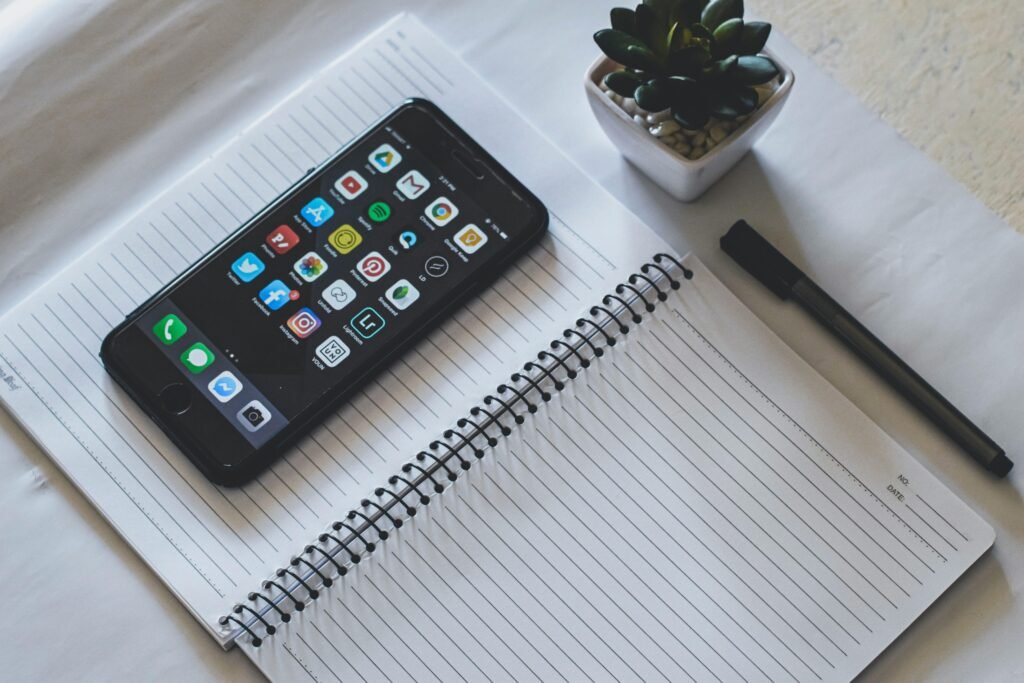
To build your confidence, try short “FOMO-free” study sprints. Start with 20 minutes. No messages, no checking. Afterward, ask yourself: Did you really miss anything important? Most of the time, you didn’t.
Build that up to 30, then 45 minutes. The more you do this, the stronger your brain gets at ignoring the FOMO signal.
And if it feels really tough, try studying with a friend who also wants to focus. Knowing someone else is putting their phone away too can make it easier for you to do the same.
Real life is happening in front of you. Your goals, your learning, your growth—that’s where your energy should go. Let messages wait.
14. Teens who turn off notifications during study time finish assignments 30% faster
This stat is exciting. It shows what you gain by staying focused. Students who turn off app notifications don’t just avoid distractions—they actually finish their work faster.
Why? Because their brains stay in one gear. They’re not wasting time switching back and forth or re-reading parts they forgot. They’re in the flow.
Finishing faster also means you have more free time afterward. So it’s not about studying harder. It’s about studying smarter.
Actionable Advice
Want to get homework done in less time? Turn off those notifications.
Before you start, take one minute to switch your phone to airplane mode or Do Not Disturb. Better yet, set a custom “Study Mode” on your phone where only learning apps are allowed. This small habit saves you big time later.
Then, focus on one task at a time. Finish one worksheet before moving to the next. Watch one full lesson before taking notes. Don’t mix study with social time.
When you finish your task, check your phone guilt-free. That’s your reward. You’ll enjoy it more knowing your homework is done.
The more you do this, the more your brain starts to like the feeling of finishing fast. And the better you’ll get at staying focused without even thinking about it.
15. 47% of students admit they have forgotten what they were studying after checking a single message
Almost half of students say they’ve lost track of what they were learning after just one message. That’s how powerful even a small distraction can be.
You might be deep into solving a problem or writing a paragraph. Then a message pops up. You reply. You come back—and suddenly, your brain goes blank. You can’t remember the last step you did. You read the same line three times. You feel stuck.
This doesn’t mean you’re not smart. It just means your brain was taken out of “learning mode” too fast. It takes effort to get back in.
Actionable Advice
Make a rule for yourself: no messages until the task is done. Even if it’s a short task, protect it.
You can also write down your current step before you pause. For example, if you’re solving a math problem and need to stop, write “next: simplify this part.” That way, when you come back, your brain gets a clue.
If you do get distracted, don’t panic. Just rewind. Go back a step or re-read the last paragraph. Give your brain a moment to catch up.
And most importantly, don’t try to study with your messaging app open in the background. Even silent notifications flashing on your screen are enough to break your train of thought.
Your brain works best in clear, quiet space. Give it that, and you’ll learn faster and remember longer.
16. Discord servers for gaming or chats are open during study time for 58% of students
More than half of students keep Discord open while they study. And for many, it’s running in the background—notifications on, friends online, servers active.
Even if you’re not chatting, the sound of a new message or the little number badge pulls your attention. It makes it harder to fully dive into schoolwork.
Gaming servers, especially, can be extra tempting. One message from a friend asking if you want to hop on a game, and boom—your focus is gone.
Actionable Advice
Close Discord completely when you’re studying. Not minimized. Not muted. Fully closed.
If you use Discord for school groups or study communities, only open it when needed, and close it right after. You can even create a separate account just for study-related servers so you’re not tempted by gaming chats.
If you find it hard to stay off, use app-blocking tools like Cold Turkey, Freedom, or even Discord’s own “Do Not Disturb” mode, which stops notifications from showing up.
Remember: those chats will still be there later. But the chance to really understand what you’re learning? That’s right now. Don’t let it slip.
17. Only 1 in 5 students report feeling truly focused when studying with messaging apps open
That means 80% of students are not getting real focus time when their apps are open. They might be sitting at a desk. They might have books open. But their mind is scattered.
They’re half-studying, half-waiting for the next ping. It feels like they’re working, but they’re not going deep. And when you don’t go deep, the learning doesn’t stick.
This “shallow studying” leads to stress later. You feel like you studied a lot, but you still don’t understand the material. That can be really discouraging.
Actionable Advice
If you want to be part of the 20% who are truly focused, here’s the secret: create a study bubble.
Start by picking a time when you know you won’t be interrupted. Tell your family or friends, “I’m going offline for 30 minutes.” Then shut down all apps except the ones you need for studying.
Set a timer and challenge yourself to stay inside the bubble. No switching apps. No checking messages. Just you and your work.
After the timer ends, step out of the bubble. Stretch, check your phone, grab water. Then decide if you want to go back in for another round.
With time, you’ll start enjoying the feeling of real focus. It feels clear, peaceful, and productive. And it helps you finish faster and feel proud of your work.
18. 74% of students respond to messages instantly even during focused tasks
Three out of every four students admit they reply right away when a message comes in—even if they’re studying or doing homework. This habit keeps your brain jumping between tasks. It trains you to treat every ping as urgent, even when it’s not.
This “instant reply” behavior also puts you in a cycle where friends expect you to answer fast. And that makes it even harder to put the phone down, even when you’re trying to focus.
You’re not being rude by not replying right away. You’re being responsible with your time and attention.
Actionable Advice
Change your message settings to show that you’re busy. Use status features like “Do Not Disturb” or set a custom status on apps like Discord and WhatsApp saying, “Studying—back soon!” It helps set the right expectation with your friends.
Also, schedule reply times. Say to yourself, “I’ll study for 45 minutes, then check messages for 10.” This gives your brain clarity. You’re not saying no to messages—you’re just saying not now.
If replying instantly is a habit, break it slowly. Wait 5 minutes before answering. Then try waiting 10. Stretch it out until your study sessions are message-free.
With time, your friends will understand—and your brain will thank you.
19. Students who practice focused study without social apps report 50% less stress before tests
This stat is powerful. Half the stress gone—just by learning to focus.
Students who stay off social apps while studying feel more prepared. They don’t panic as much before tests. Why? Because they know they actually understood what they learned. Their study time was clear, deep, and calm.

When you study in a distracted way, it feels like you never really “got it.” That builds anxiety. But focused learning builds confidence.
Actionable Advice
If you want to walk into tests feeling calm, protect your study time now.
Build a simple routine: quiet space, no social apps, clear goal. Even if it’s just for 30 minutes a day, the effect is huge over time.
Also, don’t leave study until the last minute. Focused, spaced learning is 10x more effective than cramming with a buzzing phone beside you.
After every study session, take 2 minutes to review: What did you just learn? Can you explain it in your own words? If yes, you’re ready. If not, go back and try again—but without opening any apps.
That small pause makes a big difference in how confident you’ll feel later.
20. 68% of students report sleeping poorly after studying with active chat notifications
Sleep and study are deeply connected. Your brain locks in what you learned while you sleep. But if your phone keeps buzzing late at night, your brain never gets that quiet time to process it all.
Students who study while chatting often stay up late, feel mentally “wired,” and then sleep poorly. The next day, they feel tired, foggy, and less ready to learn.
Poor sleep ruins everything—focus, memory, mood, and health.
Actionable Advice
If you want to sleep better (and study better), shut down chat apps at least one hour before bed. Not just mute them—fully close them.
Set a bedtime reminder on your phone. Or put your phone on a charger outside your bedroom. If you use it as an alarm, get a cheap physical alarm clock instead.
Also, avoid using screens right before bed. If you must, turn on night mode to reduce blue light.
Give your brain peace at night, and it will repay you the next day with more focus, better memory, and stronger mood.
21. Students studying with phones on silent mode show a 13% improvement in recall
Even just switching your phone to silent can help your brain remember better. A 13% memory boost might not sound huge—but over weeks and months, it adds up to a major improvement in learning.
This happens because your brain isn’t waiting for the next sound. It relaxes. It settles in. And it can focus deeper.
Silent mode isn’t perfect—seeing your phone light up still distracts. But it’s a strong first step.
Actionable Advice
Start with silent mode. Then take it further—turn off vibration. Flip the phone face-down. Or better yet, put it in a drawer or bag while you study.
Try this for just one day: study with no sounds, no pings, and no pop-ups. Then test yourself. Review what you learned. You’ll likely find you remember more, and it feels easier.
Repeat that tomorrow. And the next day. You’re building a better memory muscle, one quiet moment at a time.
22. Only 7% of students use app blockers or study timers to reduce distractions
That means 93% of students aren’t using tools that could make studying easier. That’s a missed opportunity.
App blockers and study timers are like invisible guards. They protect your focus so you don’t have to rely on willpower alone. They give you structure, and structure creates calm.
Actionable Advice
Try a simple study timer app like Pomofocus, Flora, or Focus Keeper. These apps let you work in blocks (like 25 minutes of work, 5 minutes of break). It’s simple but super effective.
For app blocking, try Freedom, Cold Turkey, or Forest. You set a time and select which apps you want to block. Then you can’t open them—even if you try.
Set it and forget it. Let the tools do the heavy lifting so your brain can focus on learning.
You don’t need to be strong. You just need a system that works for you.
23. 80% of students feel they “lose track of time” when switching between apps and study material
Time blindness is real. One moment you’re reading a textbook. Then you check Discord. Then you scroll through a few snaps. Before you know it, an hour is gone, and you’ve learned almost nothing.
This leaves students feeling frustrated and behind. You planned to study. You even sat down to do it. But distractions ate up all the time.
And then the guilt hits.
Actionable Advice
Keep a clock or timer in your study space. Set a clear goal: “I’ll finish this chapter in 30 minutes.” Not “I’ll study until I’m bored.”
You can also write down your start and end time. This simple act makes you more aware of how you spend your minutes.
Use a visible timer like a sand clock or visual countdown timer on your screen. When you see time moving, you use it better.
Time is the one thing you can’t get back. Use it wisely, and your future self will thank you.
24. 49% of students admit they study longer but retain less when social apps are open
This stat speaks to one of the most frustrating things for any student: putting in the hours, but not seeing results. Almost half of students admit that when social apps are open, they end up studying for longer periods—but they retain less information.
You can sit at a desk for three hours, but if you keep breaking your focus to check messages or scroll through snaps, those hours won’t be effective. It’s like filling a bucket with a hole at the bottom. No matter how much water you pour in, it keeps leaking out.
This happens because learning isn’t about how much time you spend. It’s about how much focus you give. When your attention is split—even a little—your brain doesn’t absorb the material deeply. You read, but you don’t remember. You solve problems, but you forget the steps later. And so you keep going, hoping more time will fix it.
But more time isn’t the answer. More focus is.
Actionable Advice
Instead of studying longer with distractions, study shorter with focus. A 45-minute session with no social apps will almost always beat a 2-hour session with constant pings.
Start small. Commit to 30 minutes of deep focus. Turn off all messaging apps. Let your brain dig into one subject without interruption. After 30 minutes, take a short break. Then go again.
You’ll likely discover that you need less time overall—and you remember more.
Also, use checkpoints. Every 10 minutes, pause and ask yourself: “What did I just learn?” If you can’t answer, go back. Don’t keep reading if your brain isn’t catching it.
If you’re a visual learner, try drawing diagrams or explaining the topic aloud to yourself. Focused study allows your brain to connect ideas better and store them more clearly.
The best part? You’ll finish sooner and feel more confident. And that’s way better than spending all day studying and still feeling lost.
25. High-distraction study habits are linked to a 36% higher chance of academic burnout
Academic burnout isn’t just about being tired. It’s when you feel drained, unmotivated, and emotionally checked out from school. It’s when even simple assignments feel overwhelming. And students who study with distractions like messaging apps are 36% more likely to reach this point.
Why? Because distraction doesn’t give your brain real rest. You might think chatting during study time is a break—but it’s actually mental multitasking. Your brain is switching gears constantly. It gets tired faster. And you don’t feel the reward of actually completing a task.
That constant cycle—of studying with interruptions, feeling behind, then pushing harder without results—leads straight to burnout.
Actionable Advice
Prevent burnout by protecting your focus. When you study deeply and finish tasks, your brain releases dopamine—a “feel good” chemical. It tells your brain, “Yes! We did it!” That’s how motivation builds.
Build daily wins. Even if it’s just reading one chapter without checking your phone, celebrate it. Those wins restore your energy.
Also, create clear limits. Don’t study all day. Don’t study while chatting. Give your brain separate zones: “This is study time. This is relax time.” Mixing the two makes both feel unsatisfying.

Use movement to break up long sessions. Take a walk. Do 10 jumping jacks. Drink water. These physical resets help your mind reset too.
If you’ve already hit burnout, take 1–2 days off from all screens except what’s needed. Let your brain rest. Then start fresh with new habits. Less time. More focus. Clear goals.
Burnout is real, but it’s not permanent. You can recover by creating a healthier, distraction-free study rhythm.
26. On average, a student checks Discord/Snapchat/WhatsApp over 150 times during a 3-hour study session
This stat shows just how out of control screen habits can get—150 checks in just three hours. That’s one check every 72 seconds.
Now ask yourself: can any brain focus with that many interruptions?
Each check isn’t just a second or two. It’s a full break in mental flow. Your attention resets. Your brain drops what it was holding. And even if you jump back quickly, you lose the momentum you had built.
Worse, these frequent checks make your brain crave short bursts of dopamine. Instead of enjoying a full learning session, it becomes trained to seek constant micro-rewards—likes, snaps, new messages.
That kind of pattern kills deep learning.
Actionable Advice
You don’t need to quit these apps forever. But you do need to take control.
Start by limiting yourself to checking messages once per hour. Use a timer. Every time you reach for your phone, remind yourself: “I’ll check in 20 minutes.” That small pause builds resistance over time.
Next, track how often you check apps. Write it down for one session. Seeing the number can be a wake-up call—and a motivator to reduce it.
You can also schedule a dedicated 10-minute social time between subjects. During that time, catch up guilt-free. But once the timer ends, go back to focused learning.
And finally, uninstall the app from your study device. Use Discord or WhatsApp on your phone only—not your laptop. If the tab isn’t open, the temptation drops.
The fewer times you switch, the stronger your brain becomes. 150 checks isn’t helping you. Try cutting that to 10—and feel the difference.
27. Background message alerts, even if unread, reduce comprehension by up to 25%
This stat is wild. Even if you don’t open the message—even if you don’t read it—the simple act of seeing an alert can lower your understanding by a quarter.
You could be reading a science paragraph, and if a WhatsApp alert pops up on your screen, your brain’s ability to grasp that paragraph drops. Why? Because part of your brain is now split—“What’s the alert? Should I check it? Is it urgent?”
That tiny split causes a dip in focus. And comprehension suffers.
Over time, you might start to believe you’re just “bad at reading” or “not good at learning,” when really—your environment just isn’t clean enough for deep thinking.
Actionable Advice
The first step is to remove background alerts completely. Go into your phone’s settings. Turn off banner notifications, lock screen previews, and vibration alerts for every chat app during study hours.
If you’re on a computer, close messaging tabs completely. Don’t leave Discord minimized. Don’t let WhatsApp run in the background. If it’s open, your brain knows it’s there—and that’s enough to distract you.
Try using a full-screen app or tool like Notion, Google Docs, or a PDF reader in presentation mode. This pushes distractions off-screen.
And if you’re worried about missing something important, ask a parent or sibling to keep an eye on your phone during your study window. Let them filter what’s urgent.
Every 1% of comprehension matters. If you want to truly understand what you study—not just skim it—then remove background alerts completely. You’ll remember more. You’ll learn faster. And you’ll enjoy the process more.
28. 58% of students say they feel mentally exhausted from juggling studies and constant chat updates
More than half of students say they feel drained when they try to manage both studying and social chatting at the same time. And that’s not surprising.
The brain uses energy every time it switches tasks. Each time you stop writing an essay to reply to a message, or pause a math problem to check a Snap, your brain shifts gears. It has to restart focus from zero—and that’s exhausting.
You might feel like you’ve done a lot after a long study session filled with distractions, but in reality, you’ve mostly just switched back and forth hundreds of times. It’s like running in place—you’re tired, but you haven’t gone anywhere.
That kind of exhaustion builds up. It can lead to headaches, mood swings, and even long-term dislike for learning.
Actionable Advice
If studying leaves you feeling wiped out every time, take a good look at how you’re studying—not just what you’re studying.
Try going completely offline for just one session. No tabs. No chat. No background apps. Just you, your book, and your brain. Then check how you feel afterward. Chances are, you’ll feel more clear and energized—not more tired.
Also, take active breaks, not screen breaks. Don’t rest your brain by scrolling. That just keeps it wired. Instead, stretch, walk, breathe, or sip water. Let your mind go still for a few minutes.
And at the end of each study session, do something light that makes you happy. Listen to music. Doodle. Pet your dog. Give your brain something calm to land on.
Studying shouldn’t leave you exhausted every day. When you study with focus, it can feel refreshing and even joyful. Let go of the juggling act, and choose clarity instead.
29. 77% of students using messaging apps while studying experience chronic procrastination
Procrastination often starts small. You sit down to study, but before opening your notebook, you check WhatsApp. Then Discord. Then Snapchat. Thirty minutes later, you’ve barely started—and now you feel behind, anxious, and frustrated.
This is how habits form. The brain gets used to delaying difficult tasks by switching to easy ones—like checking a message. Over time, this leads to chronic procrastination. And nearly 8 out of 10 students who use messaging apps during study say this happens to them.
The worst part? Procrastination doesn’t just steal time—it steals confidence. You begin to believe you’re lazy or incapable, when really, it’s just a pattern you can break.
Actionable Advice
The key is to make starting easy. When you sit down, do one tiny thing—like opening your book, reading the first sentence, or solving the first easy question. That first step breaks the resistance.
Use timers. Set a 10-minute countdown and tell yourself, “I only have to focus until the timer ends.” Once you begin, it’s much easier to keep going.
Also, change your environment. If your usual spot makes it easy to check your phone, move. Go to a different room, or even study outside.
Limit your decision-making. Don’t ask, “What should I study today?” Instead, decide the night before. When your brain has a clear path, it doesn’t try to escape into distractions.
And finally, forgive yourself when you slip. Don’t quit the whole day just because you got distracted once. Pause, reset, and begin again. That’s how you build momentum.
30. Students who do deep focus study without social interruptions are 2.5 times more likely to achieve academic goals
This stat is full of hope. Students who learn to focus deeply—without constant checking and chatting—are 2.5 times more likely to reach their goals. That could mean getting better grades, passing an exam, getting into their dream school, or just feeling confident and in control.
Why does focused study make such a difference?
Because it’s compound growth. Each focused session builds on the last. You remember more. You feel proud. You start to enjoy learning. And when you feel that way, you show up again tomorrow—with more energy and more purpose.
It’s not about being a genius. It’s about being consistent. And focus makes consistency easier.
Actionable Advice
Start by believing this: You can become someone who focuses deeply.
Even if you’ve struggled before. Even if distractions feel hard to beat. Every day is a new chance to train your brain.
Build a study ritual. Light a candle. Play soft music. Set a 30-minute timer. Clear your desk. Turn off all chats. Let your brain know: “This is focus time.”
Track your progress. Each time you complete a distraction-free session, put a sticker on your calendar or write a short note in your journal. Watch your focus grow stronger day by day.
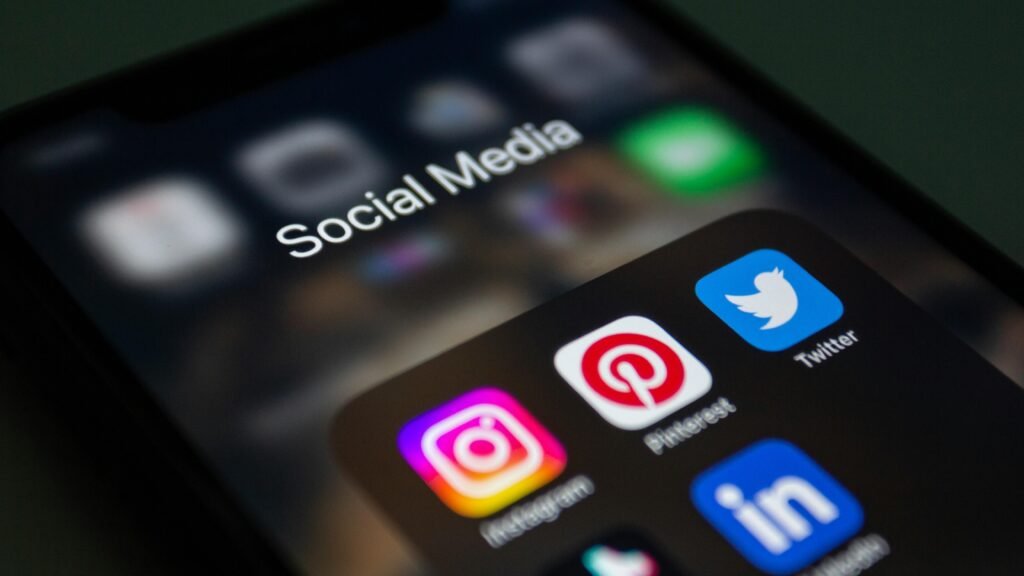
And most importantly, connect your study time to your big goals. Do you want to get better at math? Win a scholarship? Build cool tech? Make your parents proud? Keep that reason close.
Because when your “why” is strong, your focus becomes powerful.
Conclusion:
We live in a world full of pings, alerts, and endless scrolls. It’s not easy to focus. But it’s possible—and more than that, it’s worth it.
Every stat you read in this article proves one thing: Distractions are real, but they are beatable. Your brain wants to focus. It just needs your help.
So start small. Pick one strategy from this blog and try it today. Turn off your notifications. Move your phone. Set a timer. Create your focus bubble.
